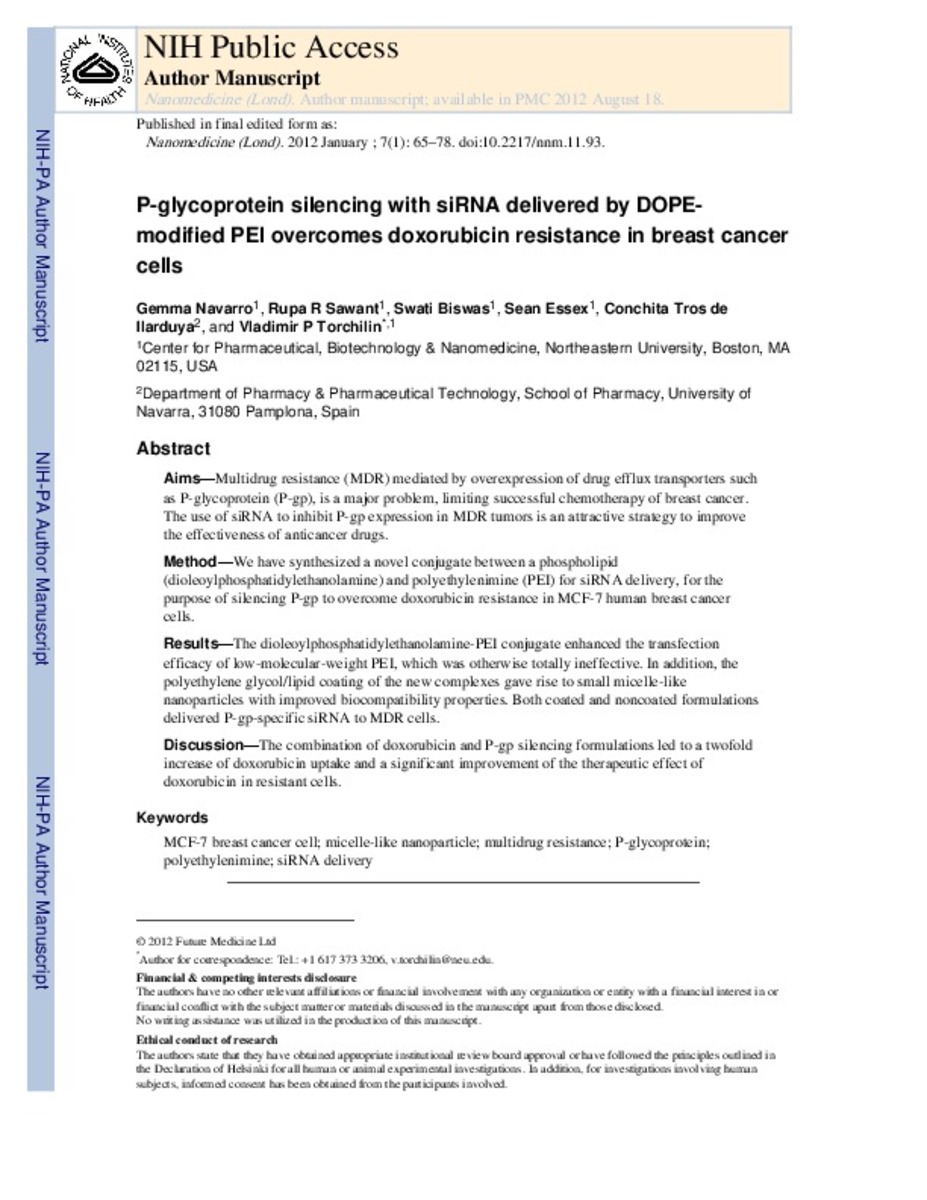P-glycoprotein silencing with siRNA delivered by DOPEmodified PEI overcomes doxorubicin resistance in breast cancer cells
Keywords:
MCF-7 breast cancer cell
P-glycoprotein
Polyethylenimine
SiRNA delivery
Micelle-like nanoparticle
Multidrug resistance
Publisher:
Future Medicine
Citation:
Navarro G, Sawant RR, Biswas S, Essex S, Tros-de-Ilarduya C, Torchilin VP. P-glycoprotein silencing with siRNA delivered by DOPEmodified PEI overcomes doxorubicin resistance in breast cancer cells. Nanomedicine 2012 Jan;7(1):65–78
Statistics and impact
0 citas en

0 citas en

Items in Dadun are protected by copyright, with all rights reserved, unless otherwise indicated.








